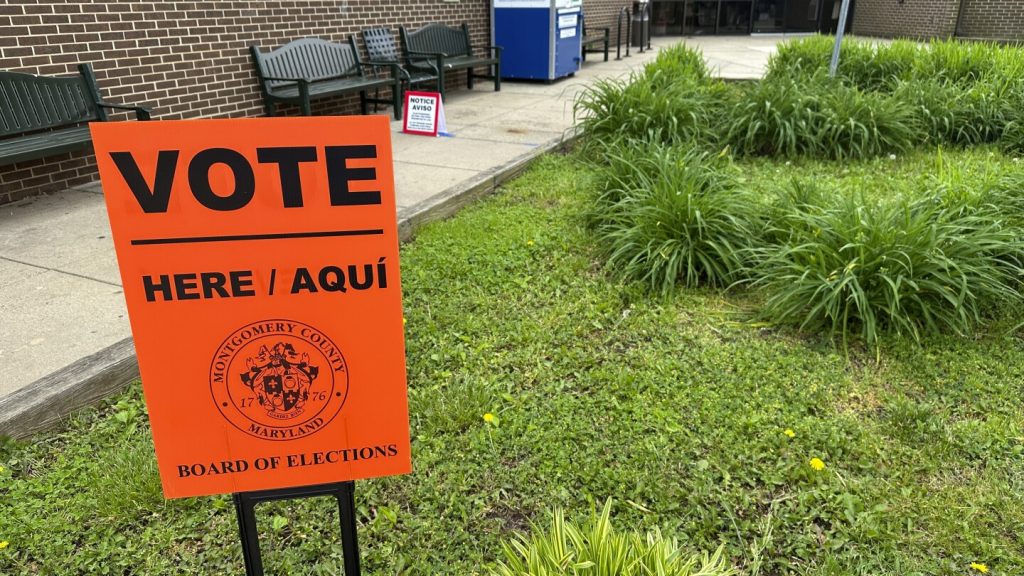In Maryland, President Joe Biden and former President Donald Trump are looking to secure victories in the presidential primaries, despite the fact that both have already been named presumptive nominees for their respective parties. The ballots in Maryland include options that have caused issues for the campaigns in previous contests, such as “uncommitted” for Biden and former United Nations Ambassador Nikki Haley for Trump. Additionally, there are contested primaries for a U.S. Senate race, with former GOP Gov. Larry Hogan entering the race, giving Republicans hope of winning a Senate seat in a state that hasn’t elected a Republican Senator since 1980.
The Democratic primary for the U.S. Senate seat features 10 candidates, including U.S. Rep. David Trone and Prince George’s County Executive Angela Alsobrooks. Trone, who has loaned his campaign $54 million, has outspent Alsobrooks, but she has the support of much of the state’s Democratic establishment, including Gov. Wes Moore and U.S. Sen. Chris Van Hollen. In the U.S. House races, there are unusually large primary fields competing for open seats, with significant competition in the 2nd, 3rd, and 6th Congressional Districts. Additionally, first-term Baltimore City Mayor Brandon Scott faces several challengers in a Democratic primary rematch.
On primary day in Maryland, polls will close at 8 p.m. ET, with results reported for the Democratic and Republican presidential primaries, as well as contested primaries for U.S. Senate, U.S. House, and Baltimore mayor. Maryland’s 95 pledged Democratic delegates are allocated according to the national party’s standard rules, with candidates needing to receive at least 15% of the vote to qualify for delegates. In the Republican presidential primary, all 37 delegates will be awarded to the winner of the statewide vote. The jurisdictions to watch for protest votes against Biden or Trump are likely Baltimore City and Prince George’s and Montgomery counties.
In the U.S. Senate Democratic primary, key areas to watch are the Democratic strongholds where candidates like Trone and Alsobrooks will need strong support to win. Meanwhile, Hogan’s criticism of Trump could impact the Republican primary, with his chances of winning potentially hinging on support in more conservative areas. The AP does not make projections and will declare a winner only when the trailing candidates can’t close the gap. Turnout and advance voting in Maryland have been significant, with a high number of ballots cast before the primary. The process of vote-counting typically concludes in the early hours of the morning following the primary.
With the Republican and Democratic National Conventions looming, Maryland’s primary marks a critical point in the race for the presidency, as well as for down-ballot races. The results in Maryland will provide insights into voter preferences and could potentially impact the strategies of the presidential campaigns moving forward. As candidates await the outcome of the primary, the focus shifts to the general election in November, with both parties vying for control of key seats in Congress and state government.















